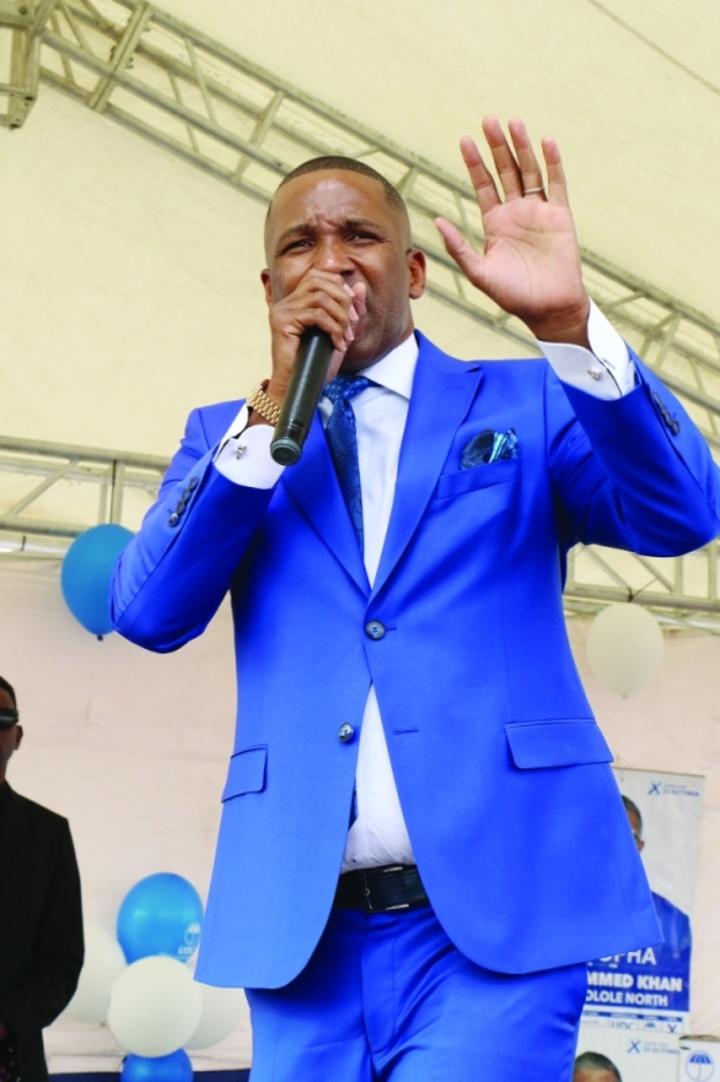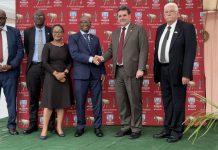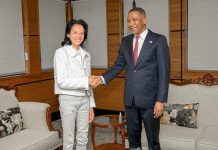Africa-Press – Botswana. The Umbrella for Democratic Change (UDC) leader, Duma Boko might have missed an opportunity to unite the coalition if sequels of the weekend national executive committee (NEC) meeting in Palapye are anything to go by. It is widely known that Boko presides over a deeply divided coalition.
Most notably, the Botswana Congress Party (BCP) has in recent weeks been open about governance challenges and lack of democracy in the coalition. This has reportedly infuriated other parties in the UDC, namely the Botswana People’s Party (BPP) and Botswana National Front (BNF). Going into the weekend NEC meeting in Palapye, the expectation was that Boko would use the meeting to inspire optimism and send a message that the UDC is still a solid entity despite the challenges it had been going through in recent weeks. But the meeting achieved the opposite. The UDC came out of the gathering a more polarised entity than before and its split is increasingly becoming inevitable. Insiders at the meeting say that both the BNF and BPP shrugged off suggestions by the BCP to have governance issues in the UDC discussed. But, for Boko he could have used the meeting as the first step towards reconciling warring UDC partners. Instead of discussing their differences, the BNF and the BPP reportedly spent time bashing the BCP for openly speaking against the UDC in public.
A decision was later reached (without the input of the BCP) that the BCP retracts statements it made against the UDC. From a distance the decision to demand an apology from the BCP without extensively discussing governance and democracy concerns raised by the former or at least pushing for reconciliation might not have been in order.
That is not to say that the BCP was entirely correct to criticise the UDC in public. Boko could have disparaged the BCP for the tone it has been using when publicly speaking about challenges in the coalition. Additionally, between disparaging the BCP and those who continue to speak against the UDC, he could have also made calls for harmony. This he totally failed to achieve. By demanding an apology from the BCP, Boko was further alienating the former. In addition, demanding a retraction was a clear attempt to humiliate the BCP. The BNF and BPP were also simply closing any room for reconciliation or to some extent writing off the chances of the BCP remaining in the coalition. It is public knowledge that the BCP has vowed not to apologise. An apology from the BCP would render its concerns about lack of democracy in the UDC irrelevant on the contrary a reconciliatory approach would have forced both parties to push for a compromise.
The fact that the decision to demand an apology from the UDC was taken by the BPP and BNF rather than an independent arbiter to some extent shows less sincerity towards the BCP. In fact, leading up to the meeting there was mounting speculation that the BNF and BPP intended to expel the BCP from the UDC for speaking out about governance challenges. Dynamics leading to the meeting ultimately mean that reconciliation with the BCP was not an option for the BPP and BNF at the weekend meeting. Demanding a retraction was also not only harsher on the BCP. Such kind of approach does not bode well for Boko and the UDC. It portrays Boko’s leadership as oppressive. It also ends the message that under him, the UDC will punish those who dare to speak out against any form of injustice. Creating an impression that those who ask tough questions will be punished leaves the electorates less positive about the UDC as an alternative to the ruling party.
People want to associate with a party that respects and cherishes debate. In a nutshell, failing to come up with an outcome that favours all the parties that would have meant the launch of a solid action plan for reconciliation, to some extent means that the weekend UDC NEC meeting failing its intended purpose to pave path for unity (amongst UDC partners). A political analyst at the University of Botswana (UB), Dr Kebapetse Lotshwao said failure of the UDC to address governance issues as one of its affiliates the BCP has long blamed for causing instability within the UDC and the public had expected, will further damage the credibility of the coalition in the build-up to the 2024 general elections. “With no credibility, it will be a miracle for the UDC to win state power or even challenge for state power in a significant way,” he said. Lotshwao added that the UDC may continue to exist even if the BCP leaves, but it will be organisationally too weak to attain state power. “It’s internal contradictions are nevertheless a blessing in disguise, as they demonstrate that it is not an alternative, as it is not in any way different from those that it criticises. In this way, it cannot help consolidate and further entrench democracy and good governance in the country,” he added. Lotshwao also stated that the decision that incumbents will not be challenged in primary elections is a clear fact that there is no inner party democracy within the UDC. “This decision is further evidence of lack of democracy in the UDC.
The people should be allowed to choose the candidates. Not only is this democratic, it is also an accountability mechanism as it allows party members to reward and punish their representatives. What should members do if they are not happy? This has the potential to contribute to abstention from elections by some,” said Lotshwao. Another UB political analyst, Professor Zibani Maundeni said on the issue of poor governance in the UDC, it looks like the contracting parties are heavily divided and fail to approach it soberly enough to make any progress. “Instead, they side step hoping that it will go away. This is an unfortunate way of tackling weighty political issues. It also looks like the BNF is driven by the fear that the BCP wants to capture the leadership of the UDC and the BNF is out to prevent it at all costs. So it looks like the rivalry between the BNF and BCP will continue to play out,” Maundeni said. On the issue of how the bickering within the UDC that has been beset by the failure to adequately address issues of poor governance will affect the fortunes of the UDC in the 2024 general elections, Maundeni is of the view that each party should keep the constituencies and wards under its control has the potential to bring a semblance of temporary stability and reduce rivalry. “So, compromise is proper under the circumstances.”
For More News And Analysis About Botswana Follow Africa-Press






